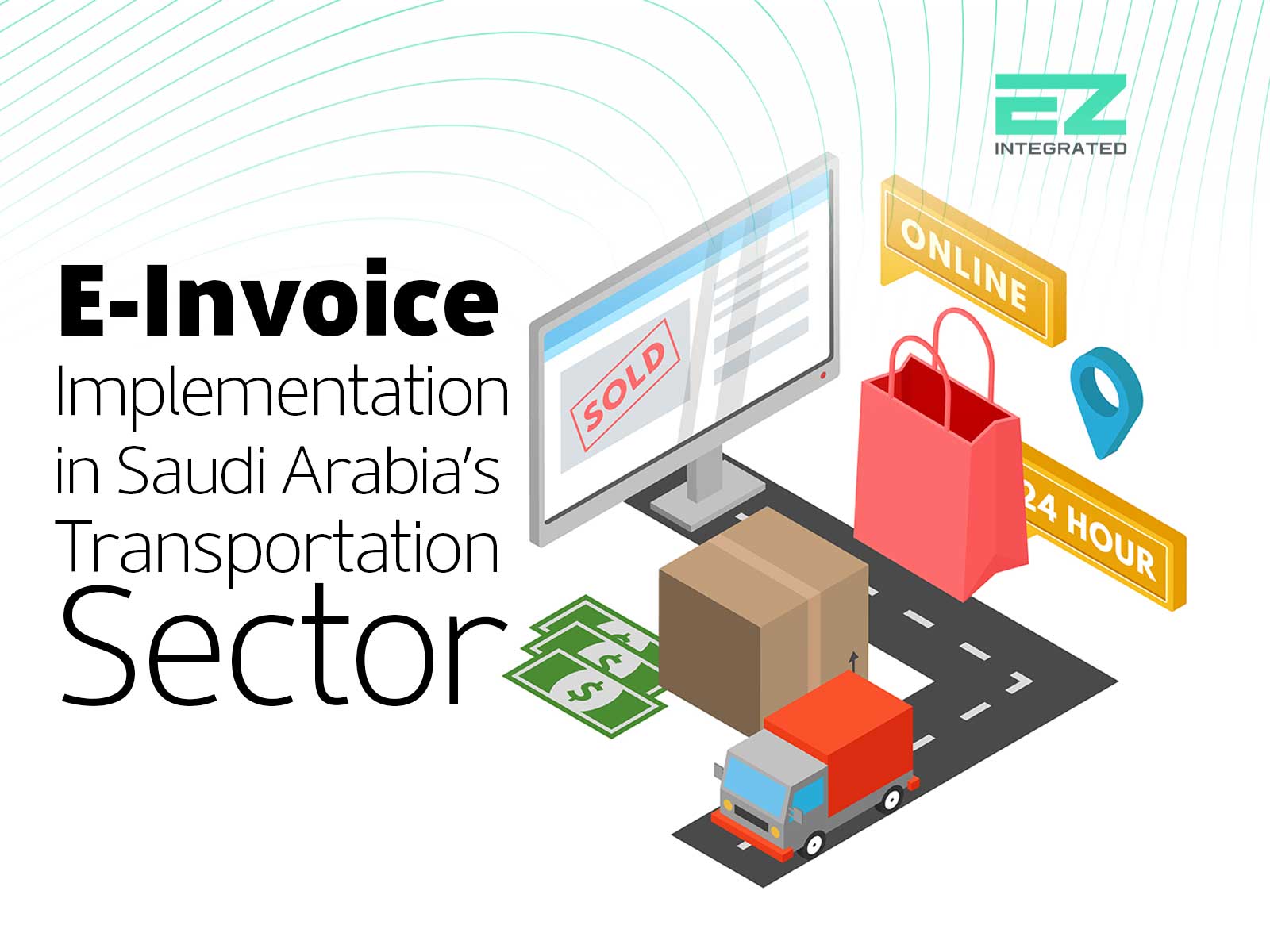Amid the comprehensive digital transformation taking place in Saudi Arabia, learning how to achieve successful e invoice implementation is vital for stakeholders in various sectors, including logistics and transportation.
In this article, we will discuss how to achieve successful e invoice implementation in the logistics and transportation sector in Saudi Arabia, starting from regulatory requirements, highlighting key benefits, and providing practical steps to ensure successful compliance.
E Invoice Implementation Requirements in Saudi Arabia
The Saudi Zakat, Tax, and Customs Authority (ZATCA) mandates e invoice implementation for all VAT-registered businesses, including those in the transportation sector. To comply, businesses must adhere to the following phases:
Phase 1: Generation phase
Starting from December 4, 2021, businesses are required to issue invoices electronically through a compliant accounting system, ensuring the inclusion of all mandatory fields like the tax number and QR code.
Phase 2: Integration phase
Launched in January 1, 2023, this phase focuses on linking e invoicing systems with the “FATOORA” platform, enabling the electronic review and automatic submission of invoices to relevant authorities.
The Importance of E Invoice Implementation for the Transportation Sector
Learning how to implement e invoice in the transportation sector presents a significant opportunity for improving financial and administrative performance. The benefits include:
1. Reducing Financial and Administrative Errors
The electronic system minimizes errors caused by manual data entry, ensuring financial data accuracy and reducing tax and administrative issues.
2. Enhancing Tax Compliance
Understanding how to implement e invoice ensures meeting ZATCA’s requirements, reducing the risk of penalties or fines.
3. Accelerating Payment Processes and Improving Cash Flow
E invoices facilitate faster document submission, reducing payment delays and enhancing business liquidity and cash flow.
4. Improving Supplier and Customer Relationships
By issuing accurate, traceable invoices, e invoice implementation fosters trust between businesses, suppliers, and customers, improving business relationships.
Also read: How to Use E-Invoice to Strengthen Supplier Relationships
Step-by-Step Guide for E Invoice Implementation in the Transportation Sector
To ensure successful e invoice implementation in the transportation sector, follow these steps:
1. Assess Current Accounting Systems
Review your current accounting systems to ensure they comply with ZATCA’s requirements.
2. Choose a Compliant Invoicing System
Select an e invoicing system that supports issuing invoices in XML or PDF/A-3 formats. This requires specialized solutions from accredited service providers.
3. Train Staff on E Invoice Implementation
Educating employees on e invoice implementation is crucial for ensuring efficient and error-free use of the new systems.
4. Conduct Pilot Tests
Before full implementation, perform tests to ensure the accuracy of e invoices and their ability to integrate with the “FATOORA” platform.
5. Monitor Compliance and Continuous Updates
Continuously monitor regulatory updates and ensure your accounting systems are regularly updated to meet new requirements.
Challenges in E Invoice Implementation and Solutions in the Transportation Sector
Despite the numerous benefits, businesses may encounter challenges when implementing e invoicing, such as:
1. Resistance to Change Within the Company
Some employees may struggle with adapting to the new invoicing system. This can be addressed through training sessions and workshops to familiarize them with the new processes.
2. Initial System Implementation Costs
Businesses may face initial costs for new invoicing systems. However, many invoicing solution providers offer flexible solutions suitable for small and medium-sized companies in the transportation sector.
3. Integration Issues with Existing Systems
Older accounting systems may not be compatible with e invoicing requirements. This challenge can be overcome using integration solutions like those offered by EZ Integrated to ensure smooth linking.
Also read: Top 5 E Invoice Integration Methods with ZATCA
Choose EZ Integrated E Invoicing Solutions for Seamless Integration and Compliance
If you’re looking for integrated solutions for how to implement e invoice in the transportation sector, EZ Integrated offers:
– Fully compliant systems with ZATCA’s requirements.
– Seamless integration with your current accounting and invoicing systems.
– Specialized technical support to help you tackle any challenges during implementation.
– Flexible solutions catering to businesses of all sizes, from startups to large enterprises. Start your digital transformation journey today! Contact the EZ Integrated team now to schedule a free consultation and discover how to implement e invoice in your business easily and efficiently.
